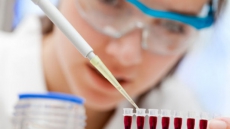Neuroscientists at Georgetown University Medical Center (GUMC) have found that menthol acts in combination with nicotine to desensitise receptors in lungs' airways that are responsible for nicotine's irritation.
“We know that a menthol cough drop soothes a scratchy, sore throat. The question we looked at is if and how it works when the irritant is nicotine,” said study author Kenneth Kellar, professor of pharmacology at GUMC.
“The findings supports the notion that menthol is not just a flavouring agent but has a pharmacologic effect,” Kellar added.
According to the US Food and Drug Administration (FDA), menthol in cigarettes is likely associated with increased initiation and progression to regular cigarette smoking, increased dependence, and reduced success in smoking cessation, especially among African American menthol smokers.
The researchers say their study provides a better understanding of how menthol affects the function of the ?3?4 receptor - one of the most prevalent nicotinic acetylcholine receptors expressed in the peripheral nervous system.
“These receptors are also found in the brain but we do not know yet what effect menthol has on those receptors, or whether they contribute, in any way, to nicotine addiction,” Kellar noted.
“The issue may be that menthol in the presence of nicotine may reduce the irritation enough that a smoker can inhale more deeply, bringing not just nicotine but toxic smoke products farther into the lungs,” said co-investigator Gerald Ahern, an associate professor of pharmacology at GUMC.
“While beyond the scope of this study, it is possible that such deeper inhalation of menthol cigarettes, to the extent it occurs, increases the already substantial health harms from smoking,” Ahern cautioned.
The findings were presented at “Neuroscience 2014”, the Society for Neuroscience's annual meeting in Washington, DC.





